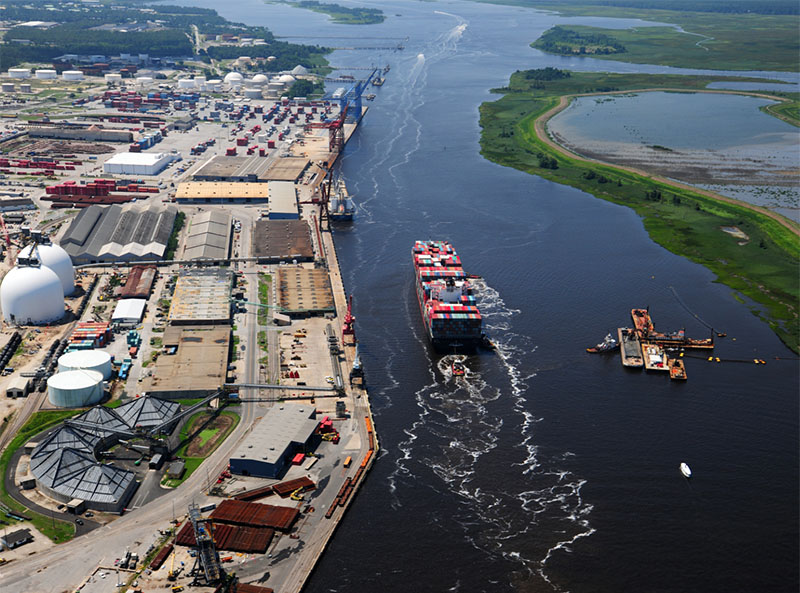Two Greek shipping companies were hit with $2.7 million in fines and penalties after being convicted of oil waste dumping, witness tampering and conspiracy, according to the U.S. Department of Justice.
The case came out of a July 2015 Coast Guard inspection of the 594’x85’ Ocean Hope, a Liberian-flagged bulk carrier that docked at the Port of Wilmington, N.C.
It is the latest in a series of federal prosecutions aimed at the so-called “magic pipe” dodge that some operators use to illegally discharge oily waste at sea. In the Ocean Hope case, two senior engineering officers who worked on the ship, Rustico Ignacio and Cassius Samson, were convicted in September 2016 of setting up the illegal dumping bypass, and organizing an attempt to mislead Coast Guard investigators when they inspected engineering logs in Wilmington.
Second engineer Ignacio was sentenced to 9 months in prison and one year of supervised parole. Chief engineer Samson was sentenced to 12 months behind bars and a year of parole.
On Jan. 11, operator Oceanfleet Shipping Limited was sentenced to pay a $1.35 million fine, plus make a $450,000 community service payment to the Gray’s Reef National Marine Sanctuary, a 22-sq. mi. live-bottom protected reef off Georgia.
Oceanic Illsabe Limited, the vessel’s corporate owner, must pay a $675,000 fine and make a $225,000 community service payment to the reef sanctuary. Each company was placed on a five-year term of probation and barred from sending ships to United States ports until those penalties are satisfied. Prosecutors said Oceanfleet, based in Athens and controlled by the same interests there as Oceanic Illsabe, in 2015 managed between 10 and 11 vessels. But Oceanic Illsabe, officially registered in Liberia, had no other assets than the Ocean Hope, built in 1996, which was scrapped shortly after the companies were indicted, prosecutors said.
At the 2016 trial, prosecutors showed the companies “maintained a lax ‘paper’ compliance regime focused on avoiding liability rather than adequately training and supervising engineers.”
In fact, the companies did not follow their own stated environmental policies, and management ignored warning signs such as the vessel’s failure to offload oil sludge for many months, and the rare uses of its oil-water separator, prosecutors said.
The direct oil bypasses occurred on at least two occasions as determined by Coast Guard investigators, including in June 2015 as the ship approached U.S. waters. Bilge water had been regularly dumped for at least six months prior to the inspection, prosecutors said.
Coast Guard inspectors and laboratory testing confirmed the presence of heavy oils in the vessel’s overboard discharge piping.
During the Wilmington inspection, Ignacio and Samson ordered the crew to lie to inspectors and cover up evidence, prosecutors said. Samson was convicted of presenting a falsified oil record book, with faked accounting of the production and disposal of oily waste.




